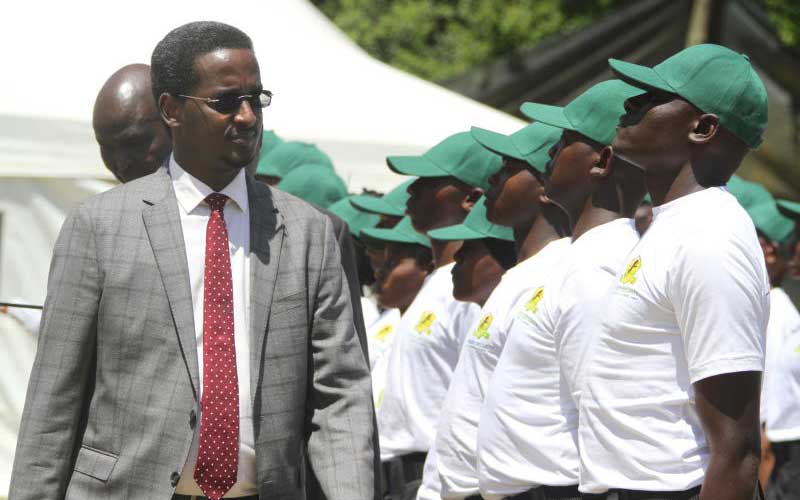×
The Standard e-Paper
Home To Bold Columnists

New regulations that have already been adopted by the Government have given powers to private security guards to carry guns and arrest criminals.
The regulations that were gazetted on Friday by Interior Affairs Cabinet Secretary Fred Matiang’i, will also see guards take upon formal police jobs such as quelling riots and getting involved in security work during elections.